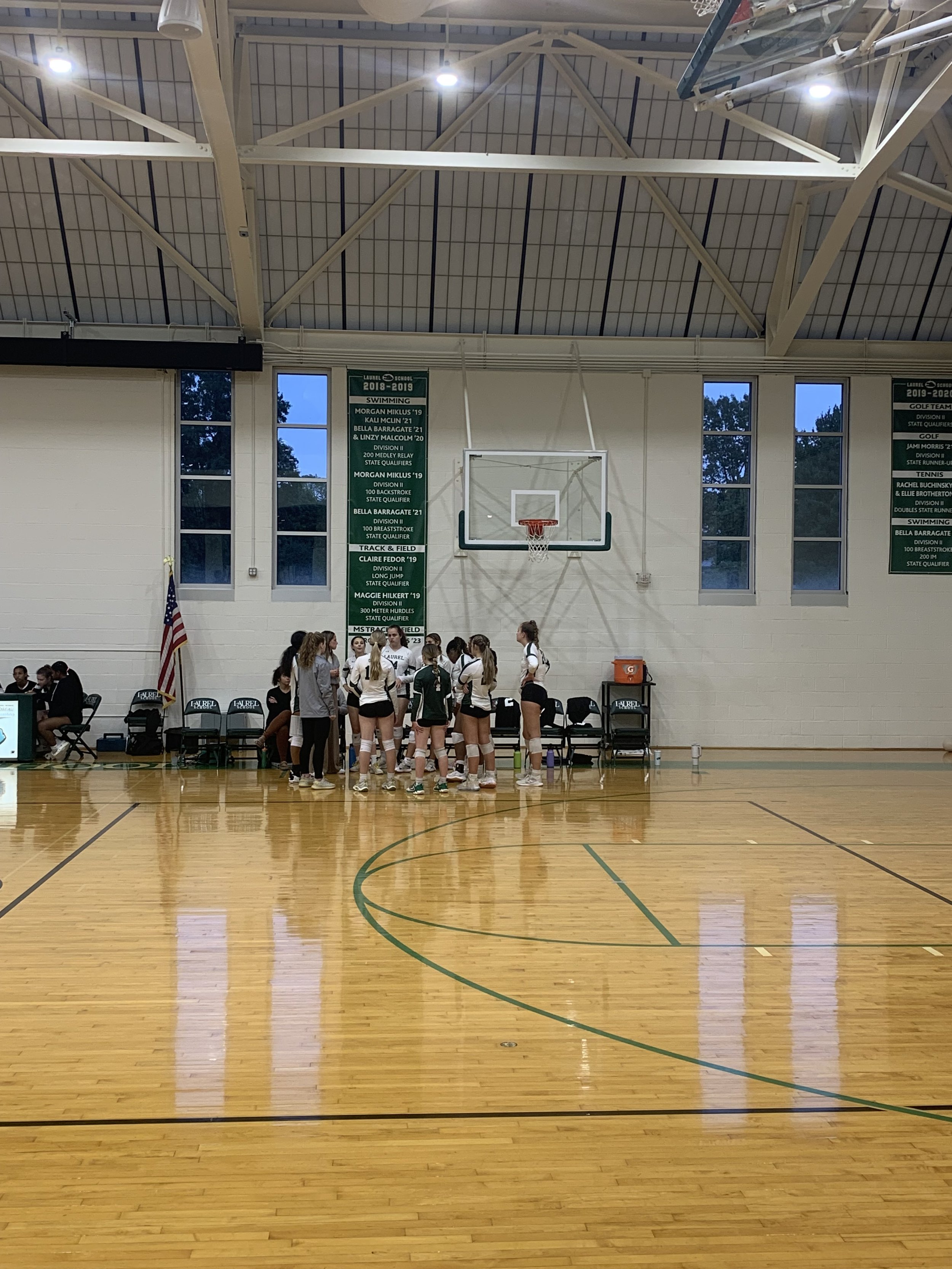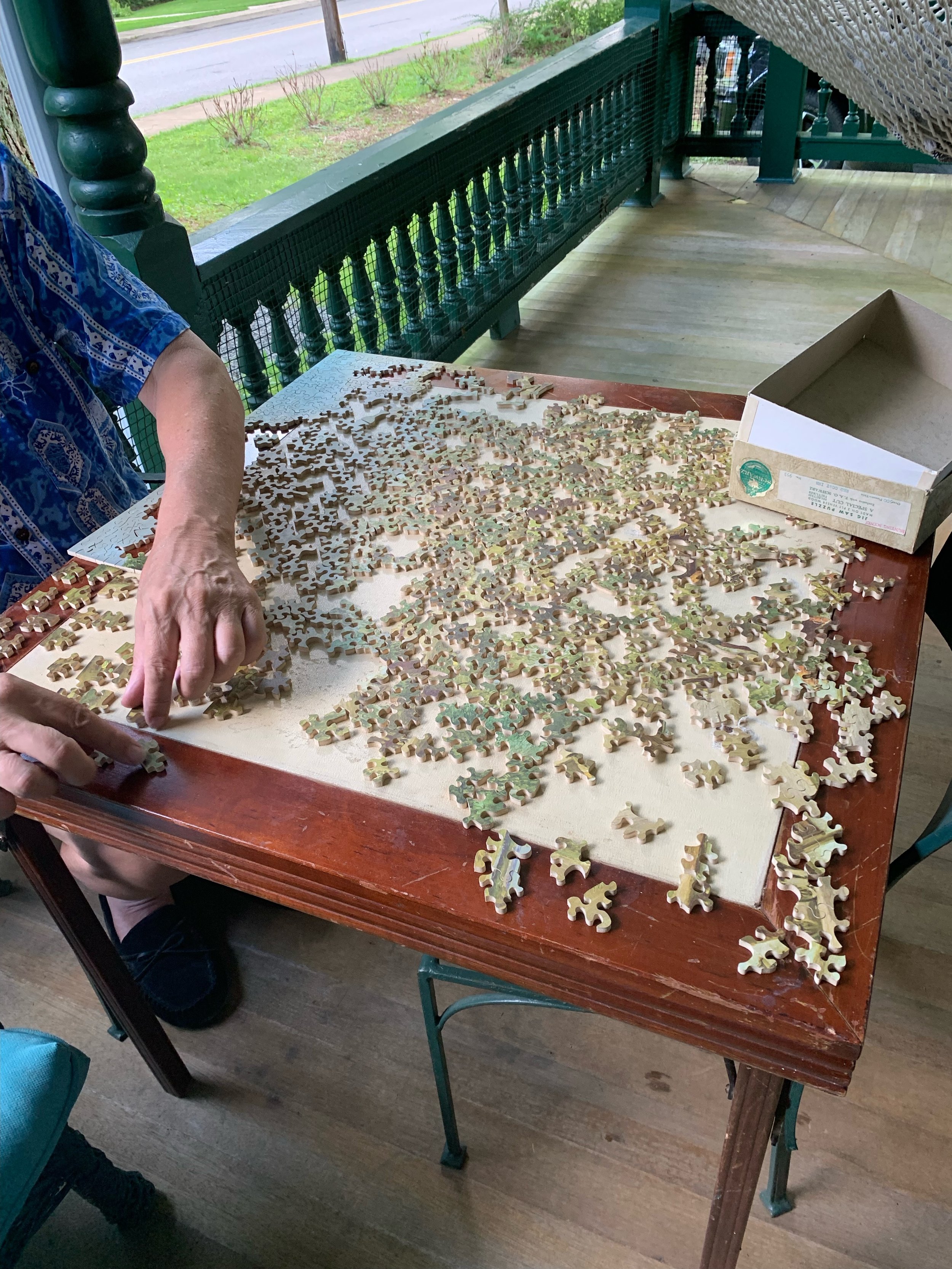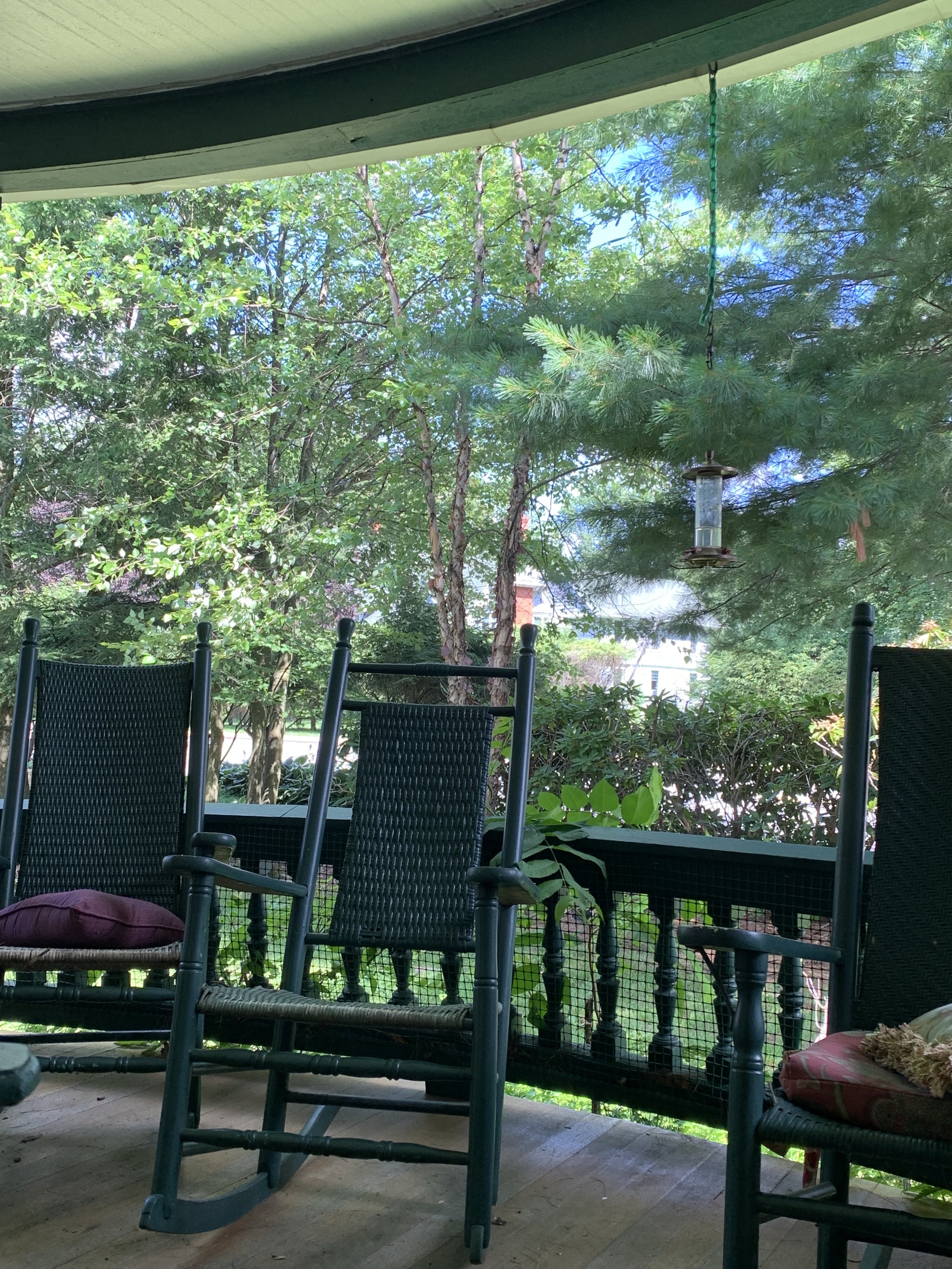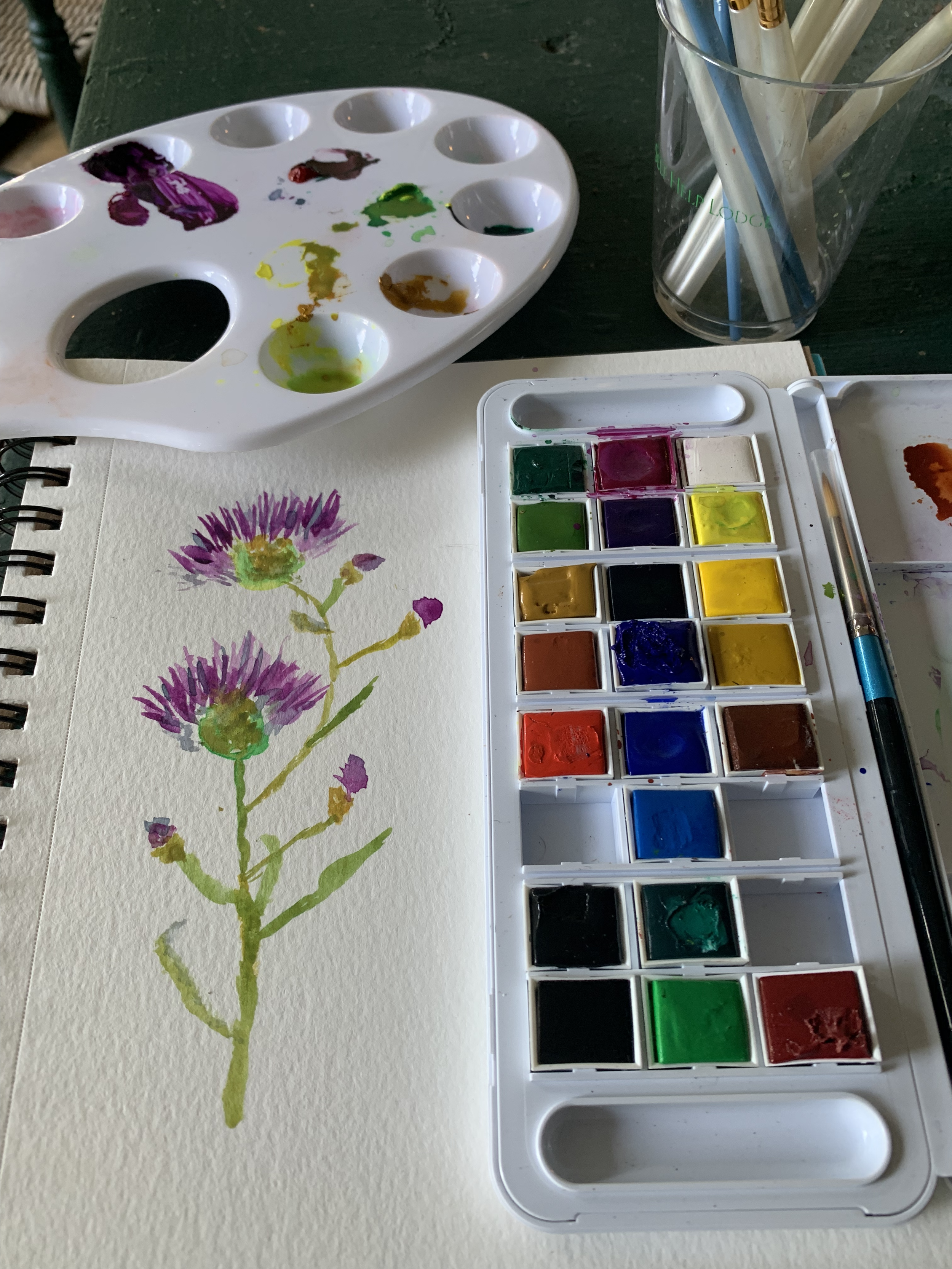Somewhere in My Memory...Gingerbread Feelings, Winter Concerts and School
The lights dim. A group of singers file onto the risers, ready. With her back to us, the music teacher begins to conduct, elbows high. The girls follow her direction, intent. Notes float through the gymnasium, transformed this evening by the addition of a stage lined with white poinsettias.
It is the evening of Laurel’s Winter Concert, an ancient tradition in our school. I stand in the back of the gym, leaning against the bleachers that retract into the wall for events like this. I gaze at our students in their formal uniform–white oxford shirts, hunter green skirts, and new this year with my blessing, a navy blazer with the school seal on the left pocket for the Juniors and Seniors. The girls’ hair gleams in the theatrical lighting. Later in the evening, I will slip into their circle make when they surround the audience to sing Somewhere in My Memory. I’ll clasp hands with Kellan and Ellie, looking atround these girls I love so deeply, smiling across at Reese, teasing another that she doesn’t know the song’s lyrics. But in this moment, at the beginning, I am thinking about all the winter concerts I have known.
Almost every historically girls’ school has some version of a winter concert. As a schoolgirl, at Agnes Irwin, I stood in a royal blue choir robe, waiting for the first chords of Adestes Fideles. Music isn’t quite the same as theatre, but it was still a performance, and, in the moments before our cue, I felt the same flicker of nerves and anticipation, my hands clutching an electric candle. In the New York City girls’ school where I taught for 20 years, there was also lovely concert right before the winter vacation, too. As Head of the Drama Department,my job was to remind the singers to smile, to articulate their final consonants, and to stage manage the event. Girls processed through the audience, holding candles, singing songs that reflected the themes of the season.
Winter Concerts remind me of the power of community, the value of coming together to share songs and pieces some have worked all semester to learn. They are celebrations, culminations, a tradition that links girls’ schools, that connects graduates across the generations and reminds us that we are connected across time, across distance, throughout our lives.
Each year, in my Welcome, I remind the audience not to clap until Silent Night is really over.
“If you don’t know,” I explain, “stay quiet.”
At the end of my twenty-first Winter Concert at Laurel, the choir will hold electric candles as they sing Silent Night and make their way from the gym up the stairs to the balcony–two flights–allowing their sweet voices to fade away in the utter dark. If all goes well, no one will clap prematurely, and the lights will stay off until the lyrics grow too faint to hear.
We are at the edge of vacation. People are fried–kids, teachers, parents. In my experience that the closer we get to a break, the more unhinged people become–in part because we are all supposed to be wrapped in some sort of Hallmark haze of joy, which can feel elusive. Why is it just cold and wet when we yearn for snow and cocoa? The rhythm of our days changes as we approach the break. Older students stress about exams. Parties–endless parties–punctuate the last week, with too much sugar for everybody. Final projects are due. Secret Snowflakes require late night runs to Target. Anticipation makes the little ones cranky–they know a change in routine is looming. Teachers–including me–fret that we didn’t get as much done as we’d hoped during first semester. Parents manage holiday preparations–perhaps organizing travel or buying or wrapping gifts or participating in over-the-top Elf on the Shelf antics or imploring other parents in their class to donate to the holiday fund for the teachers. Some in our community manage loss and sorrow, always worse, counterpointed against a cultural expectation to feel merry and bright. In fact, most in our whole school community could use a nap and a host of useful elves of our own to correct papers, soothe nerves, make dinner, and do all the things we don;’t have time to do.
And yet. The end of the term does finally arrive. On the day before break, we convene for our Snowflake Assembly. We gather in the gym–all 600 children and the faculty and staff–22-month olds perched in the too big folding white chairs that we will use at Winter Concert and at tomorrow’s Song Contest–an alumnae tradition. The toddlers wriggle in festive holiday sweaters, clutching their jingle bells for their big moment–shaking the bells as the 6th grade plays Jingle Bells, The older girls give us a preview of Winter Concert–a few songs and instrumental pieces. Our fourth graders play their ukuleles and sing. I read a story–as I always do. There’s a slow-motion snowball fight performed by the Upper School acting class and the choir–this year, the faculty make a surprise appearance, and the crowd goes wild as Senora–our longest-serving and miuch-loved Spanish teacher–prevails, still standing at the end of intense combat.
The pièce de resistance is the Snowflake Ballet. After I introduce them as the finale, the Second graders rise, and, at the direction of two classmates, smooth their filmy silvery skirts, straighten their white “snowflake” collars, take a deep breath, and float to the stage. Each small group has choreographed their own dance to the music of Debussy. They are well-prepared by their teacher, the remarkable Ida Porris, whose high standards and unwavering belief in her students’ abilities mean that even the most truculent child is temporarily transformed into a ballerina–graceful, poised, elegant. I squint at the back of each child’ head, having used a million bobby pins, tiny amounts of hair gel and just a little spray to cajole slippery 7-year-old hair into buns with hairnets–it’s a ritual. I am crazed about having every performer’s hair out of her face. I was tickled to be invited, one last time, to run a hair station at 7:30 a.m.. The girls sparkle–literally, because they have glitter on their arms and necks. At the end, as they form a circle, blowers roar into life, and flakes fall from high above the stage. The toddlers in the front row are transfixed.
We end the Flake (as I call it) with Let There be Peace on Earth. And that’s when I have to use my hankie surreptitiously to wipe my eyes. It is a truth universally acknowledged in my family that I–as well as most of my relatives–cry easily–and it’s worse at moments like these when my heart overflows with love for these children, for this school.
Worried that Winter Concert will finish me off and I might end up a puddle on the floor, I take precautions and script my remarks–unheard of–to forestall my weepiness. I tell the audience about my very first Winter Concert–it was in a church in 2004. A blizzard raged, and towards the end, the police arrived, demanding that I stop the concert. A parent had parked in the drive-thru window of the pharmacy next door. The police insisted that had to move his car.
“Can we wait till the end of the concert?” I asked.
“No ma’am,” the stern officer frowned, snow on his navy shoulders. “It has to be now.”
I do not like to interrupt performances for any reason. I looked at the church, full of our students and families. In passing, I wondered why we were in a church at all–wasn’t that hard for our Jewish or Muslim students? Or for others for a host of reasons? Squaring my shoulders and drawing myself up to my full 5’2”, I marched myself down the aisle and tapped the revered choir director on his shoulder, explaining the situation as clearly and calmly as I could. The guilty parent fled.
Last night’s audience laughs at this tale. I thank them for coming, remind them to silence their cell phones, and make my way back to Seth, my husband, who is waiting by the light board, having warned audience members (as he has done for many years) to be careful crossing over the plastic “speed bump” that covered the lighting cables.
Seth, my personal illuminator, has placed a record number of inflatables in the front yard this year for the Laurel children. I think there are 40. It’s the last time, so why not go for broke? More is more. When the inflatables–Olaf, a huge swan, a fire engine, a menorah, a Kwanzaa kinara, a minion, Mickey Mouse–lean or collapse, it looks like Christmas has thrown up on our lawn. This is Seth’s labor of love. He has been repairing and patching and replacing motors and driving stakes into the ground for the last two weeks. His hands ache and his knees aren’t doing so well either, but the yard glows, and the little ones love Mr. Orbach’s blow ups. He puts his arm around me, and the concert begins.
Another Silent Night memory floats up as I listen to The Skater’s Waltz. Perhaps it was my second year as Headmistress. I had moved the concert back to school, the church simply a bridge too far for me as a fierce advocate for belonging. A group of Upper School girls appeared at my door.
“May we talk to you, Ms.Klotz?” they asked politely. I was still so new; I wasn’t yet Ms. K or even AVK, which they all call me now–allegedly behind my back, except they know I know.
They perched on the couch.
“We really love Silent Night,” one began. I am sad that I cannot remember who the girls were–the moment is so clear, but the faces are gone.
“And I’m Jewish,” another added,
“Me, too,” chimed in the third.
“And we know it’s a Christian song and everything, but we all really love it, and it’s a tradition at Laurel–”
“So will you please not change it?” they chorused.
It’s a tradition at Laurel and we love it. Traditions matter. Newcomers don’t always understand why–it took me a long time to understand Song Contest–another Laurel tradition–but I knew enough to know that Silent Night mattered. I was moved that students who were not Christian valued the song and its place in our Winter Concert. I was proud of them for being brave enough to approach a headmistress they did not yet know well, brave enough to share what mattered to them.
“Do you think you are speaking for the majority of the Upper School?” I asked.
“We know we are,” they nodded.
“Well, then, Silent Night stays,” I said.
Last night’s concert was exceptional. It’s true that Let There Be Peace on Earth got me again, and I sobbed a bit, but at the very end, as the choir processed up the stairs, the gym fully dark, I wrapped myself in decades of memories–Agnes Irwin, Chapin, Laurel. I thought about the privilege of spending my life in girls’ schools, with remarkable students. I allowed myself to note the contrasts of this season–what’s hard and what’s magical. I imprinted the memory of this particular gorgeous evening on my heart, to cherish next December when I, for the first time in more than 40 years, will not have a school concert to attend as vacation begins.
I am glad I listened to those wise girls in my office many years ago. I love Silent Night too.





















